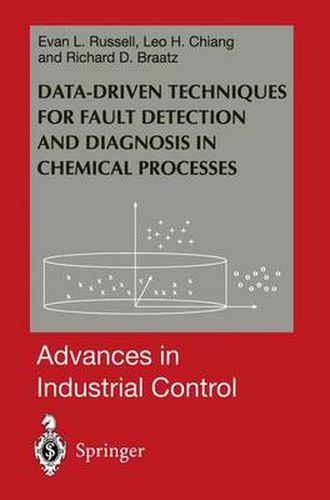Readings Newsletter
Become a Readings Member to make your shopping experience even easier.
Sign in or sign up for free!
You’re not far away from qualifying for FREE standard shipping within Australia
You’ve qualified for FREE standard shipping within Australia
The cart is loading…






This title is printed to order. This book may have been self-published. If so, we cannot guarantee the quality of the content. In the main most books will have gone through the editing process however some may not. We therefore suggest that you be aware of this before ordering this book. If in doubt check either the author or publisher’s details as we are unable to accept any returns unless they are faulty. Please contact us if you have any questions.
Early and accurate fault detection and diagnosis for modern chemical plants can minimise downtime, increase the safety of plant operations, and reduce manufacturing costs. The process-monitoring techniques that have been most effective in practice are based on models constructed almost entirely from process data. The goal of the book is to present the theoretical background and practical techniques for data-driven process monitoring. Process-monitoring techniques presented include: Principal component analysis; Fisher discriminant analysis; Partial least squares; Canonical variate analysis. The text demonstrates the application of all of the data-driven process monitoring techniques to the Tennessee Eastman plant simulator - demonstrating the strengths and weaknesses of each approach in detail. This aids the reader in selecting the right method for his process application. Plant simulator and homework problems in which students apply the process-monitoring techniques to a nontrivial simulated process, and can compare their performance with that obtained in the case studies in the text are included. A number of additional homework problems encourage the reader to implement and obtain a deeper understanding of the techniques. The reader will obtain a background in data-driven techniques for fault detection and diagnosis, including the ability to implement the techniques and to know how to select the right technique for a particular application.
$9.00 standard shipping within Australia
FREE standard shipping within Australia for orders over $100.00
Express & International shipping calculated at checkout
This title is printed to order. This book may have been self-published. If so, we cannot guarantee the quality of the content. In the main most books will have gone through the editing process however some may not. We therefore suggest that you be aware of this before ordering this book. If in doubt check either the author or publisher’s details as we are unable to accept any returns unless they are faulty. Please contact us if you have any questions.
Early and accurate fault detection and diagnosis for modern chemical plants can minimise downtime, increase the safety of plant operations, and reduce manufacturing costs. The process-monitoring techniques that have been most effective in practice are based on models constructed almost entirely from process data. The goal of the book is to present the theoretical background and practical techniques for data-driven process monitoring. Process-monitoring techniques presented include: Principal component analysis; Fisher discriminant analysis; Partial least squares; Canonical variate analysis. The text demonstrates the application of all of the data-driven process monitoring techniques to the Tennessee Eastman plant simulator - demonstrating the strengths and weaknesses of each approach in detail. This aids the reader in selecting the right method for his process application. Plant simulator and homework problems in which students apply the process-monitoring techniques to a nontrivial simulated process, and can compare their performance with that obtained in the case studies in the text are included. A number of additional homework problems encourage the reader to implement and obtain a deeper understanding of the techniques. The reader will obtain a background in data-driven techniques for fault detection and diagnosis, including the ability to implement the techniques and to know how to select the right technique for a particular application.